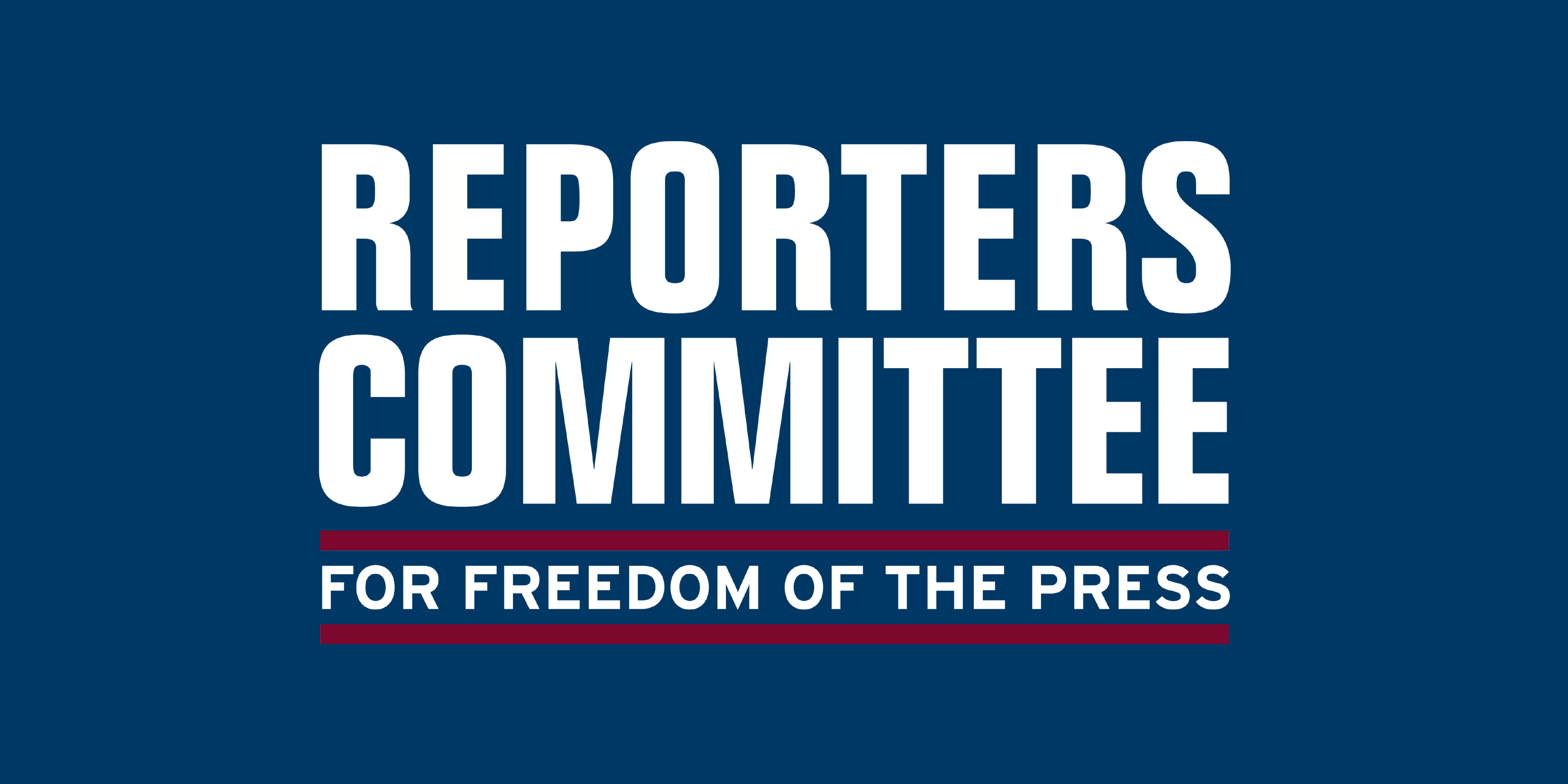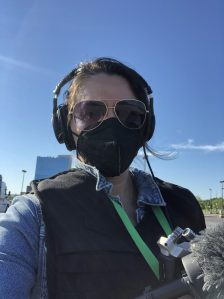Oklahoma journalist uses RCFP legal hotline to connect with attorney, obtain records on police killing of tribal citizen

By the time journalist Allison Herrera began investigating the police killing of Julian Rose earlier this year, she says the victim’s family was trapped inside a “jurisdictional maze” that prevented them from getting answers about what happened to their loved one.
Rose was shot and killed by police on Dec. 15, 2020, by officers from the Glenpool Police Department in Oklahoma. But because he was a citizen of the Muscogee Nation, the investigation of his death fell under the jurisdiction of the FBI and tribal authorities, complicating the family’s efforts to learn details of Rose’s death.

“The family just didn’t have any answers,” Herrera said.
As an Indigenous affairs reporter for Oklahoma’s NPR affiliate, KOSU, Herrera was familiar with the jurisdictional maze and determined to successfully navigate it so that the family — and the public — could get the answers they needed. After interviewing Rose’s family, Herrera says she contacted the law enforcement agencies involved in the case. Officials from both the local police department and the FBI told her that she needed to file a public records request to obtain records related to the case, including a police report and a 911 call.
On April 14, Herrera filed two requests under the Oklahoma Open Records Act with the city of Glenpool. Two days later, however, the city issued a response denying her request, claiming that the case fell under federal jurisdiction and that records “may only be released by the FBI at their discretion.”
Herrera says the city’s response didn’t sound right, so she decided to contact the free legal hotline operated by the Reporters Committee for Freedom of the Press to confirm her hunch — and get some help. Through the hotline, Herrera connected with Kathryn E. Gardner, the Reporters Committee’s Local Legal Initiative attorney in Oklahoma.
“[Gardner] said, ‘They’re not telling you the truth,’” Herrera recalled.
As Gardner explained, the Glenpool Police Department was still subject to Oklahoma’s public records laws even though the case was being investigated by the local U.S. attorney and the FBI. After agreeing to represent Herrera, the journalist says Gardner helped her file a letter with the city attorney’s office on April 23 demanding that officials turn over the records Herrera had requested.
“As a public body and/or law enforcement agency, it is your duty under the ORA to make records available for inspection and copying in a prompt and reasonable manner,” the letter stated. “The ORA entrusts these duties to you as a public body and/or law enforcement agency and not to a third-party, such as the FBI.”
In May, the city complied, turning over the police report and 911 call, as well as a police training manual for officers describing when they can and can’t use deadly force. Herrera ultimately used those records to report an in-depth investigation for KOSU and The Frontier into Rose’s death and his family’s drawn-out fight for the truth.
Herrera says she’s grateful for Gardner’s legal support. “It really helps,” she said. “And in a state like Oklahoma, reporters can feel so overwhelmed by governments continually shielding information.”
That’s especially true on the Indigenous affairs beat, Herrera says. Reporters covering tribal communities often confront complicated jurisdictional issues, as Herrera dealt with while covering Rose’s death. They must also find creative ways to access information from tribal nations, which aren’t required to comply with Oklahoma’s Open Records Act.
“It can be confusing for people,” Herrera said. “That’s when RCFP can step in and say, ‘You may not be able to get information from the tribal courts, but you can get information from this other court.’”
But Herrera says the services Reporters Committee attorneys provide through the free legal hotline are about more than just helping journalists.
“Yeah, it’s about helping me do my work, but in the end, it’s more about the families, because they wanted these answers. Ultimately, when you have an organization like the Reporters Committee helping the person you’re doing the story about, that’s what the goal is — to get answers for the victim or these vulnerable individuals who don’t have any recourse besides calling the [authorities] and getting no answers,” Herrera said. “So a service like this is really important not only for reporters but for the people we do our jobs for — for the public.”
For more information about when journalists and media lawyers should use the legal hotline — and what they should expect when they do — check out this Reporters Committee blog post.
This work was made possible by the Facebook Journalism Project and other donors.
Photo courtesy of Allison Herrera